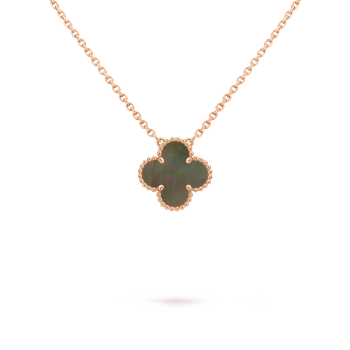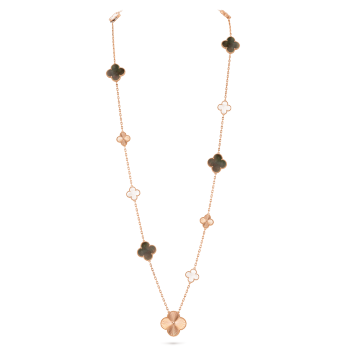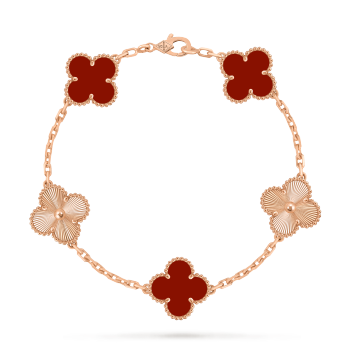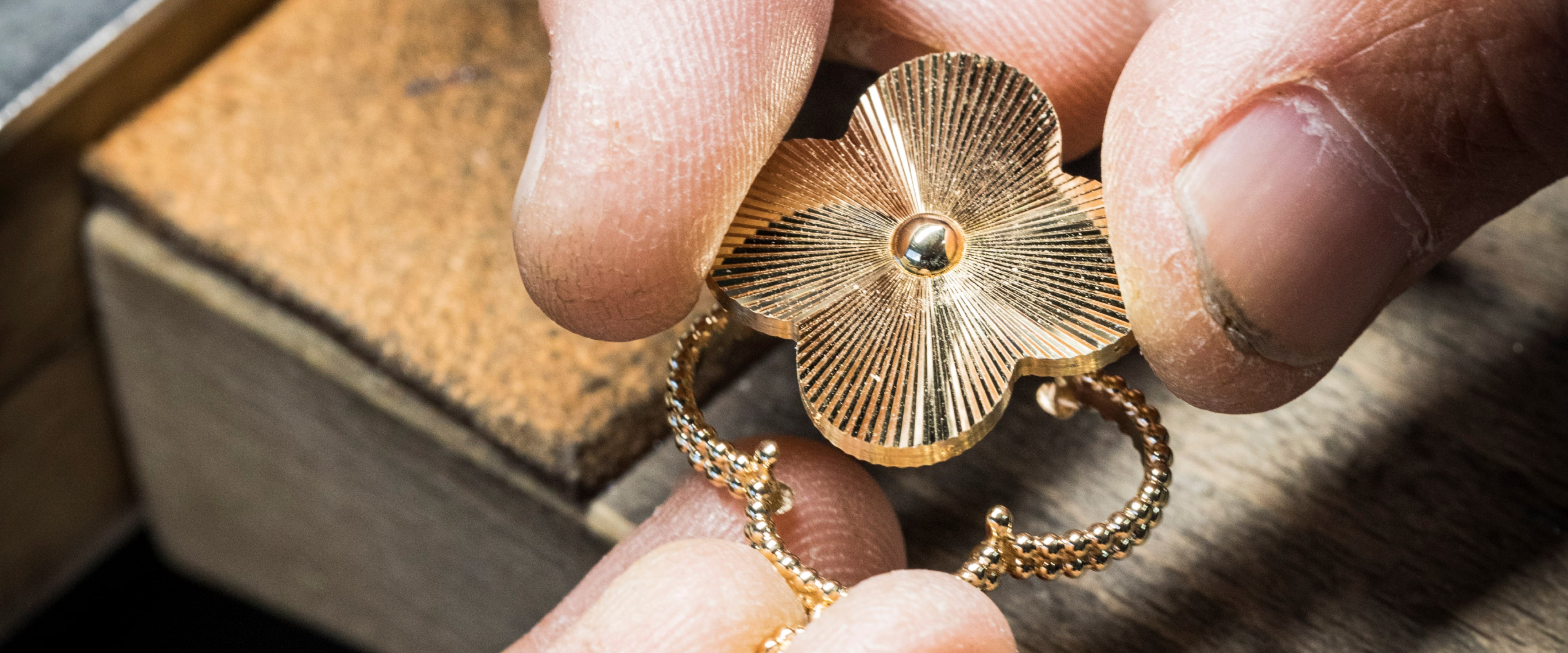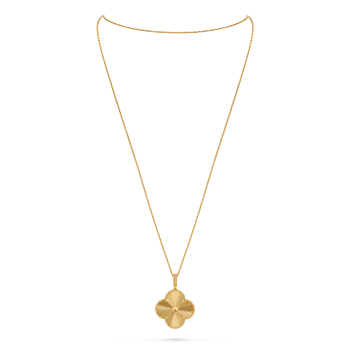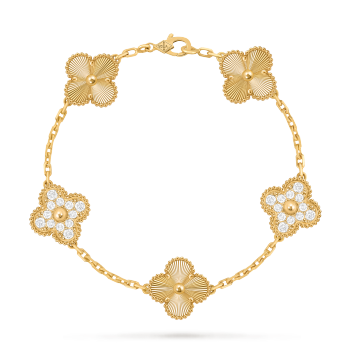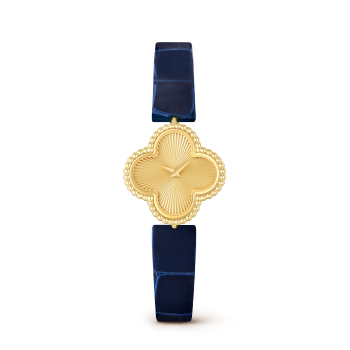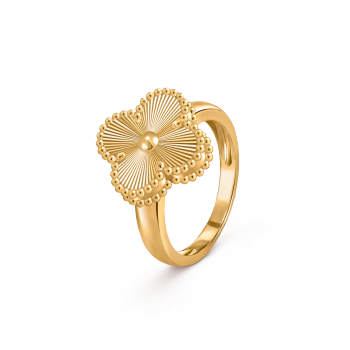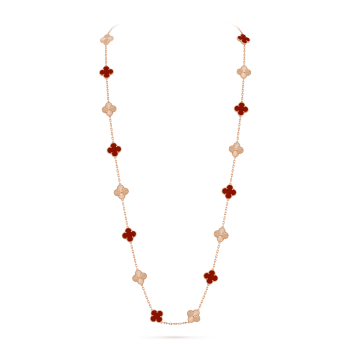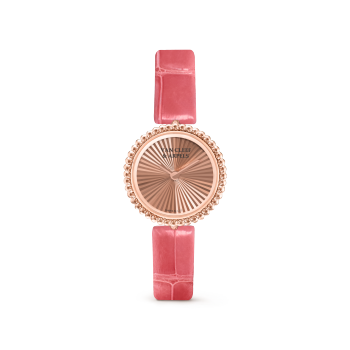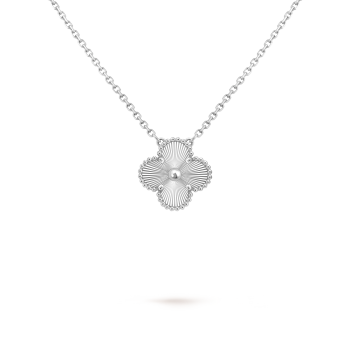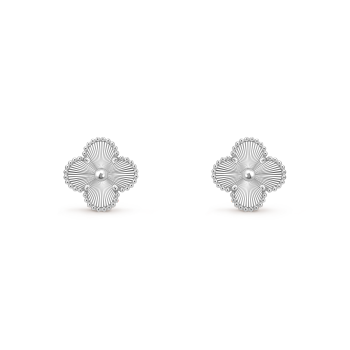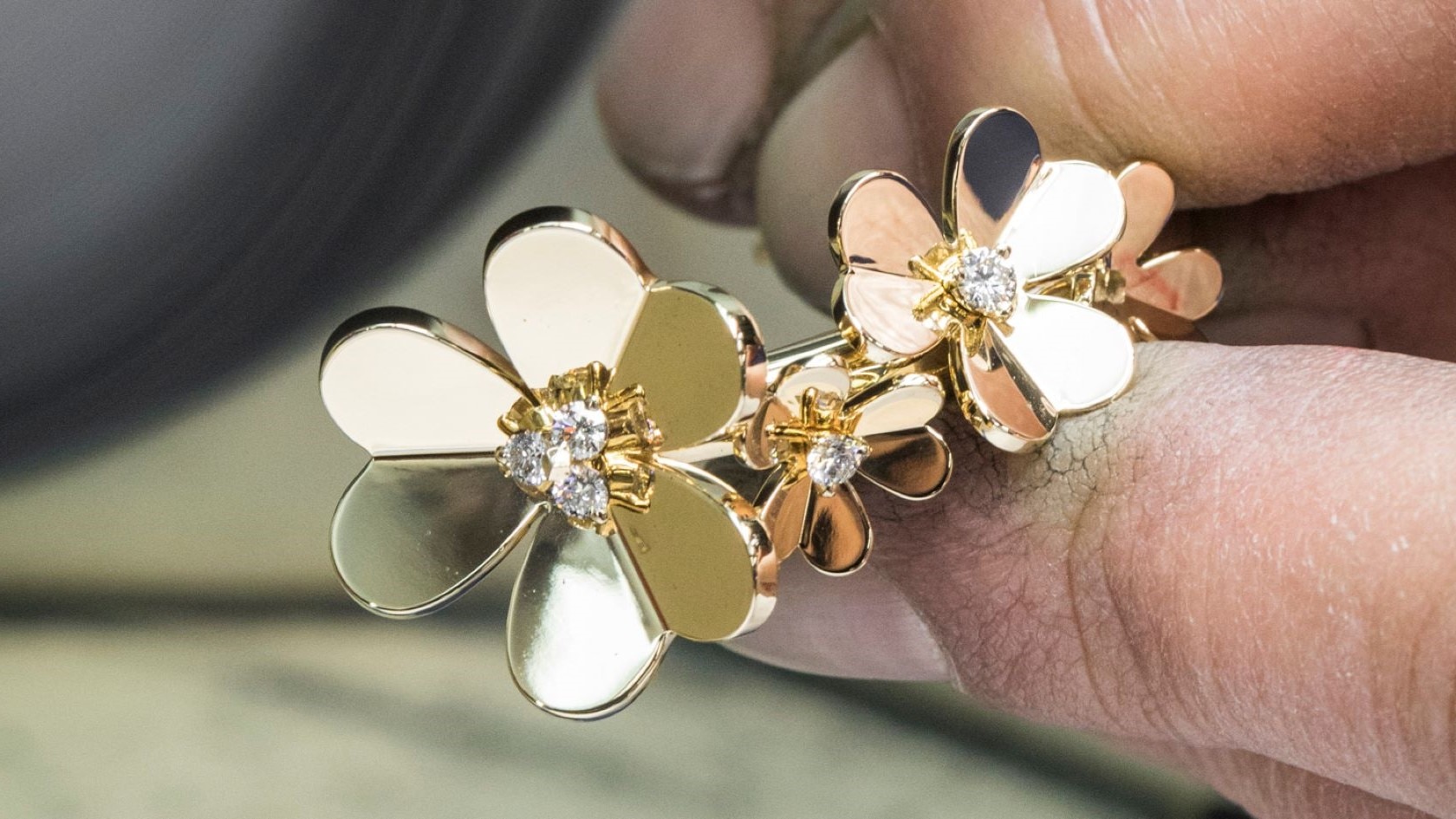The guilloché, a savoir-faire which illuminates
Van Cleef & Arpels’ creations
A traditional engraving technique taking its inspiration from goldsmithery and culinary art, the guilloché is used by the Maison since the 1910s on objects, accessories, watches and jewels.
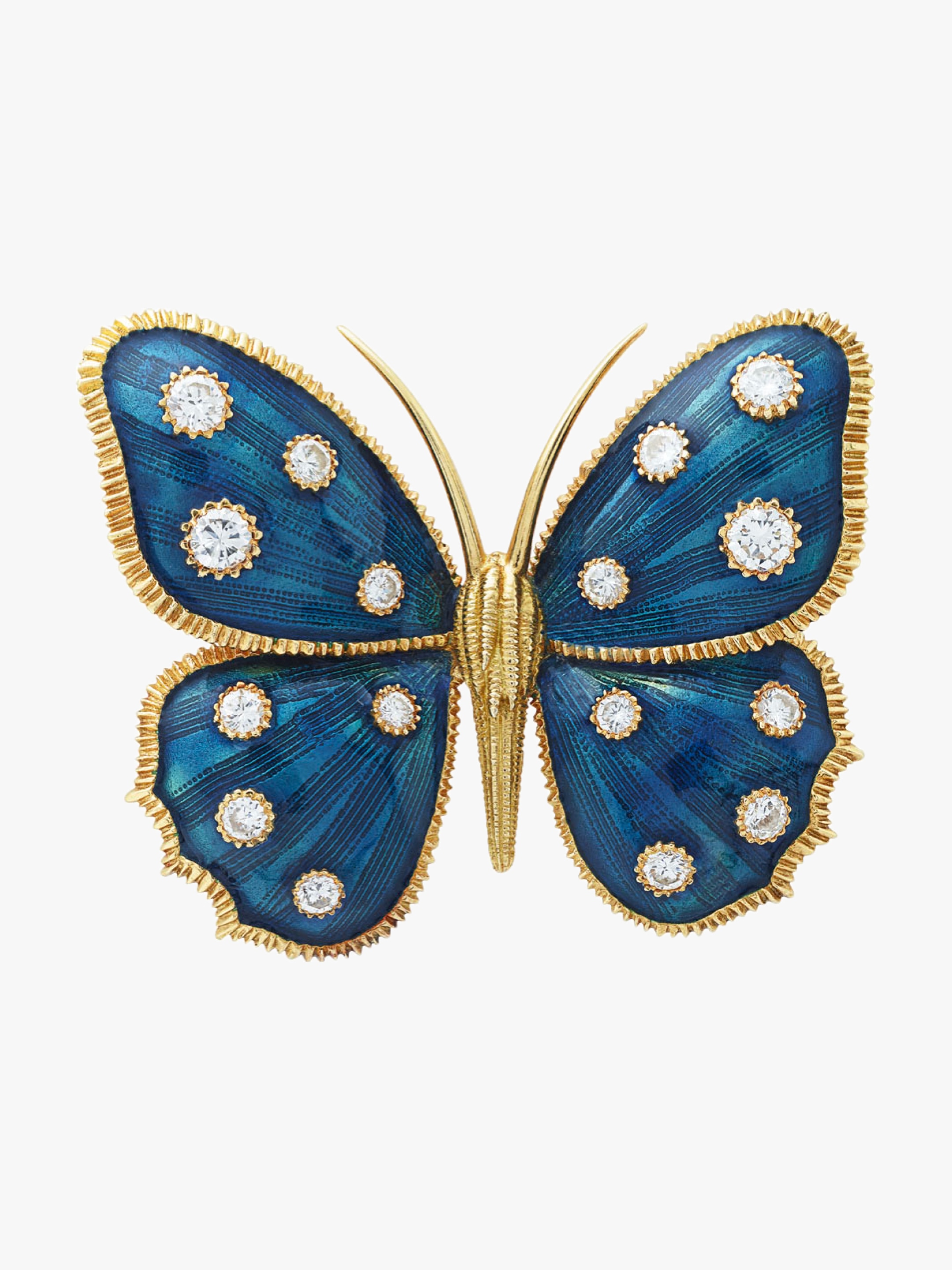
Papillon de nuit clip, 1966
Yellow gold, white gold, enamel, diamonds
Van Cleef & Arpels Collection
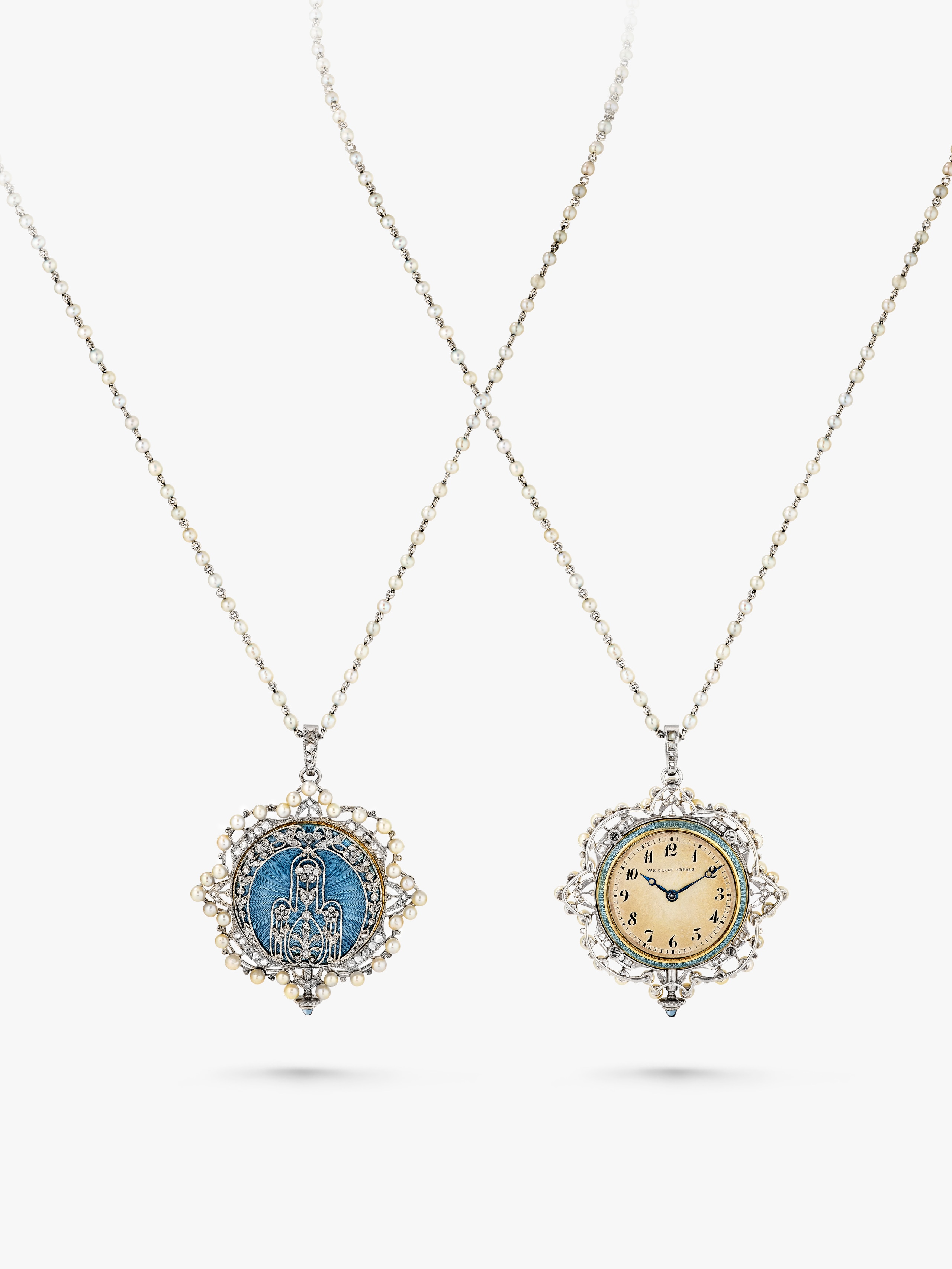
Pendant watch, 1912
Platinum, pearls, enamel, diamonds
Van Cleef & Arpels Collection
Arranged in sun-shape, in undulating lines or criss-crossed, the striations arouse subtle interplays of light.
This savoir-faire consists in engraving delicate striations, mainly on precious metal surfaces, but now also mother-of-pearl. Arranged in sun-shape, in undulating lines or criss-crossed, they arouse subtle interplays of light, changing according to the movements.
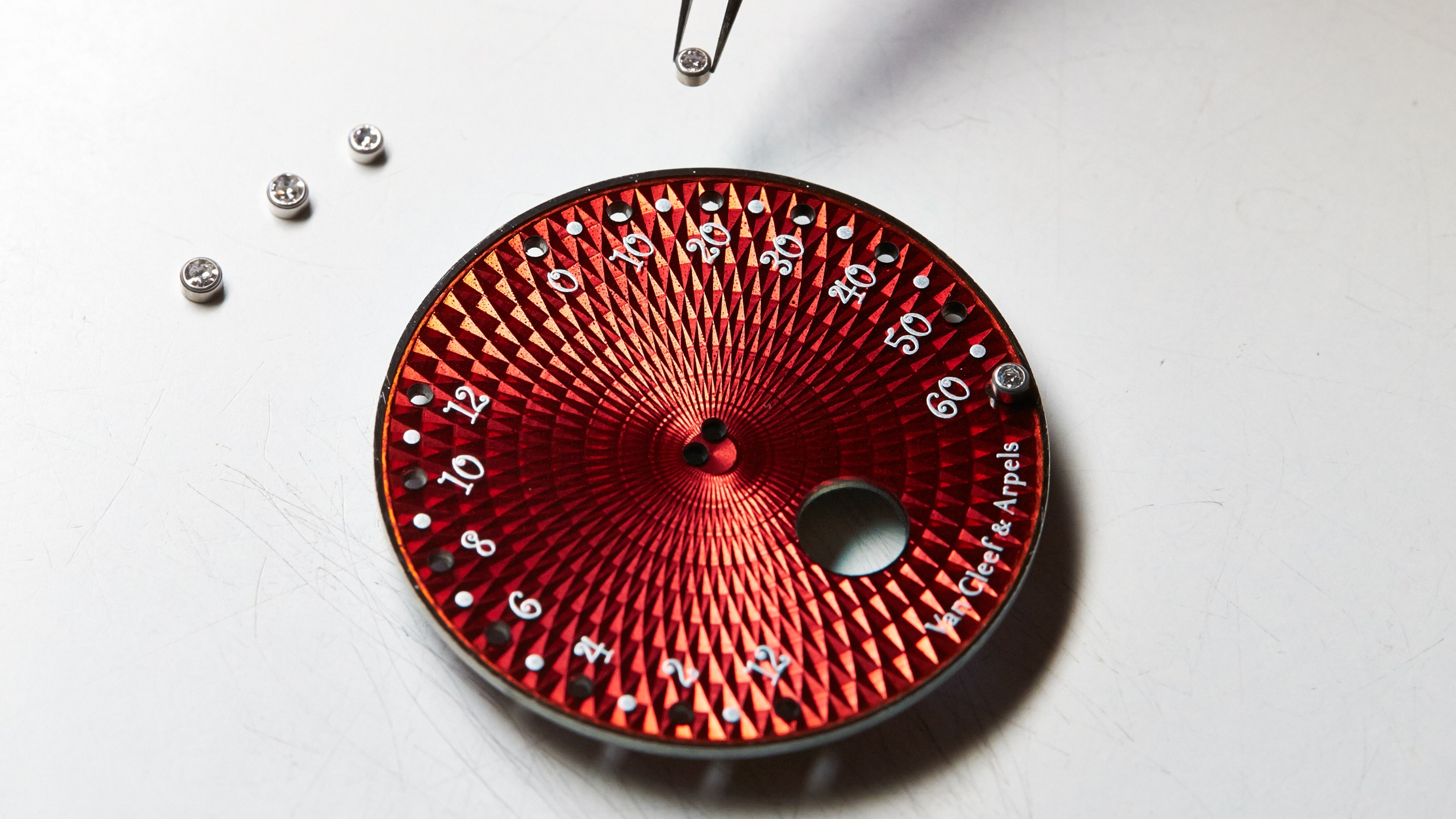
Lady Arpels Féérie Rouge, translucent enamel on gold guilloché
First present on Van Cleef & Arpels’ watches dials, this aesthetic spreads in the 1930s to cases, powder compacts, and MinaudièresTM.
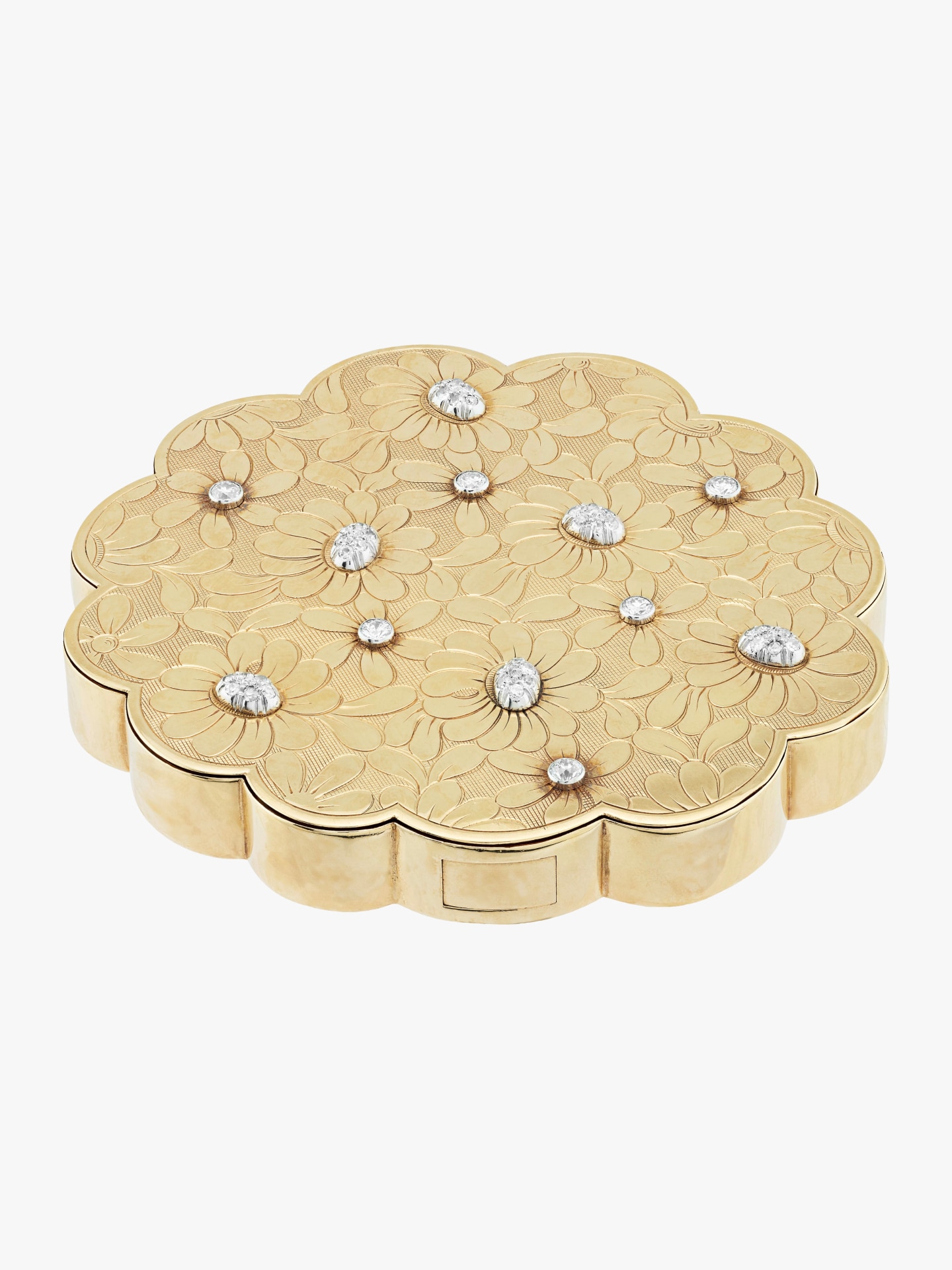
Daisies powder compact, 1948
Yellow gold, platinum, diamonds
Van Cleef & Arpels Collection
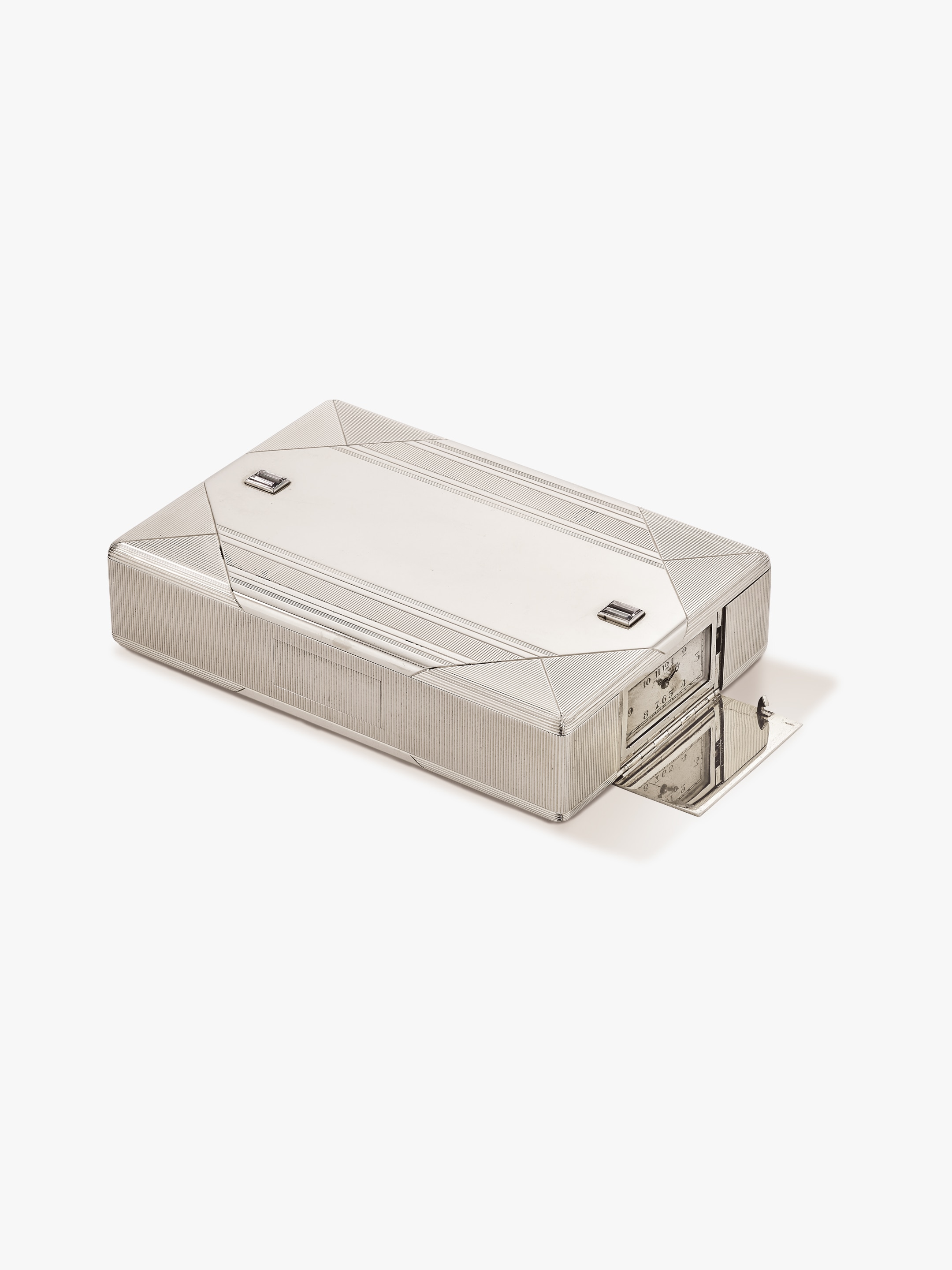
Cigarette case with watch, 1930
White gold, diamonds
Van Cleef & Arpels Collection
Nowadays, this process is given pride of place in the Maison’s collections, especially since 2018 on Alhambra® creations. The iconic motif attires itself with guilloché gold, illuminating this precious symbol of luck with its intense reflections.
